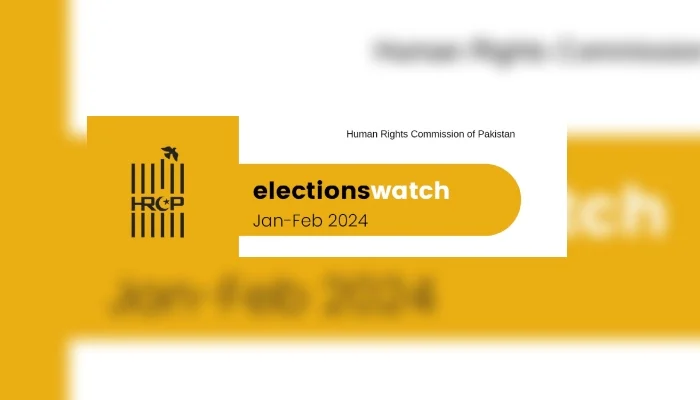LAHORE: The Human Rights Commission of Pakistan (HRCP) has expressed concerns regarding the credibility and trustworthiness of the general elections held on February 8, particularly the post-polling procedure, The News reported on Sunday.
According to HRCP’s election monitors, who conducted on-site inspections in 51 constituencies, the nationwide suspension of internet and mobile services on election day, combined with unplanned changes in polling information, jeopardised voters’ ability to locate polling stations.
According to the HRCP’s study released on Saturday, this circumstance disproportionately affected women with limited mobility, people with impairments, older persons, and voters with limited financial resources.
The lengthy wait in announcing election results by returning officials is particularly concerning. Overall, the polling procedure remained transparent and calm. Poll workers were generally well-prepared and equipped. Almost always, polling agents and candidates were handed empty ballot boxes before to polling, and the presiding officer was seen marking and signing the back of each ballot paper before handing it over to the voter. The ballot box was always visible, and voters may stamp their ballot papers in secrecy.
However, the post-polling procedure was disappointing. In one-fifth of all polling stations visited by the HRCP, the presiding officer did not place the statement of the count in a prominent location for public viewing or was not witnessed transferring a photograph of the result to the returning officer and the ECP. It was claimed in numerous cases that the returning officer’s announcement did not correspond to the presiding officer’s count.
Worryingly, reports emerged that candidates, polling agents, and observers were denied permission to watch the provisional consolidation of results. The HRCP suggests conducting an independent audit of the 2024 elections under the supervision of a legislative authority. Security and intelligence organizations should have no role in overseeing the voting process or its consequences.
Parliament must also discuss the effectiveness of the caretaker government model. Cellular and internet services must be available on polling day, including after the polls have closed.
The Elections Act of 2017 requires the ECP to publish all Forms 45, 46, 48, and 49. After receiving petitions from dissatisfied political parties or candidates, the ECP should initiate ballot recounts in close races, particularly when the number of rejected ballots exceeds the margin of victory.
The integrity of the 2024 elections was jeopardized not only by the ECP’s lack of competence, but also by continual pressure from non-democratic quarters and questionable actions made by the caretaker government, all of which the HRCP recorded in the year leading up to the polls.







